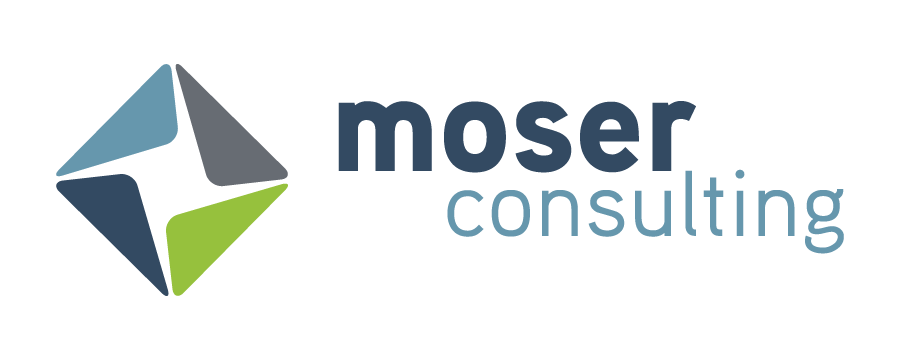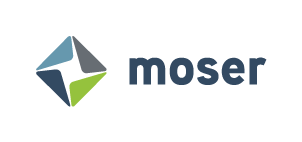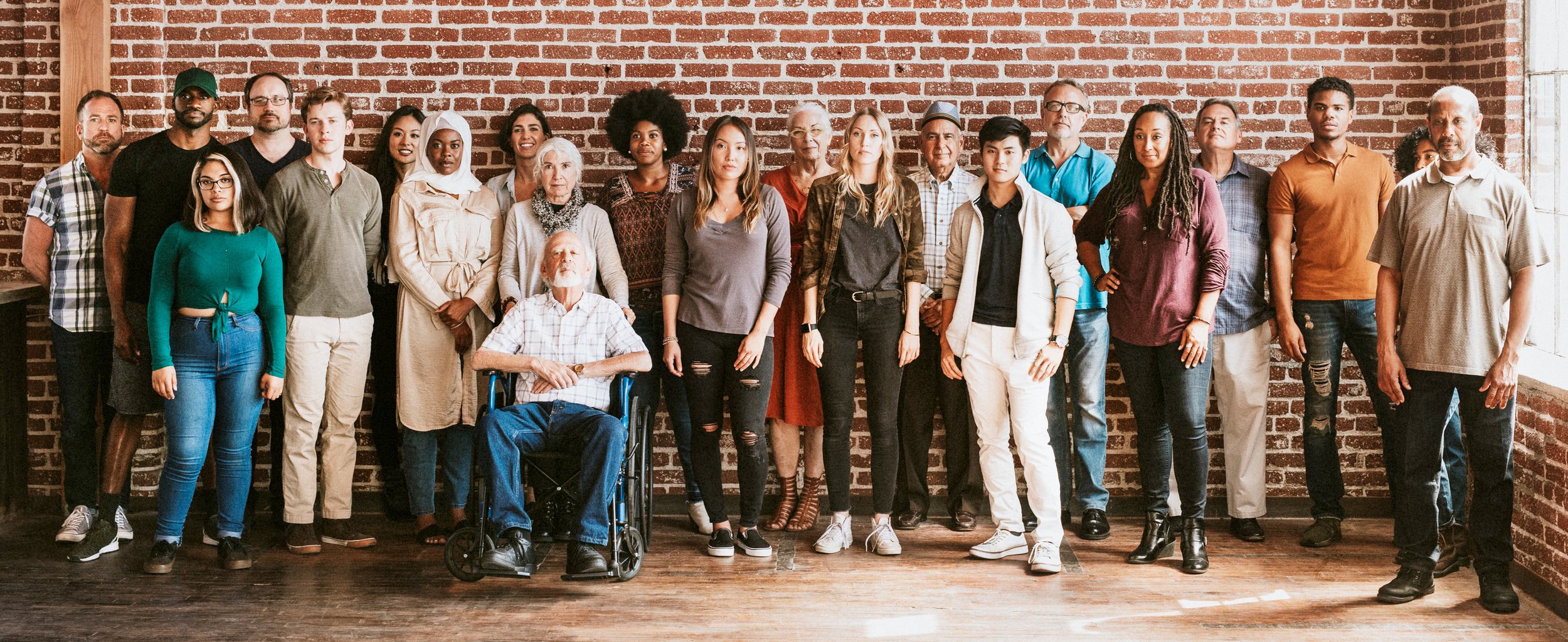
Moser Learning Blogs:
Guidance from Our Subject Matter Experts
Tags
- Acceptance
- Adversity
- Belonging
- Charity
- Coaching
- Community
- Compassion
- Conflict Management
- Continuous Learning
- Corporate Culture
- Customer Experience
- DEIB
- Data-Driven Learning
- Diversity
- EQ
- Education
- Emotional Disabilities
- Emotional Support
- Empathy
- Enhanced Utilization
- Equity
- Facing Adversity
- Fatherhood
- Gap Report
- Growth
- Handling Change
- Hiring
- Human Centric Skills
- Inclusion
- Intellectual Disabilities
- Job Benchmarking
- Job Candidates
- Job Standards
- Knowledge
- LMS
- LMS Reporting
- Leadership
- Learner Performance
- Learning
- Learning Management System
- Neurodivergent
- Neurodiversity
- Personalized Learning
- Philanthropy
- Problem Resolution
- Project Execution
- Project Management
- Project Outcomes
- ROI
- Resiliency
National Disability Awareness Month
Neurodivergent individuals are still under-employed. In 2023, the unemployment rate for people with disabilities was 7.2%, which is about twice as high as the 3.5% rate for people without disabilities. Yet, statistics show us that hiring neurodiverse individuals has proven financial and cultural benefits. This article from Arcadia University highlights a few of the ways companies see improvement in things like pattern spotting and employee retention within an inclusive culture.
LMS Reporting: An Overview of Data-Driven Learning Decisions
In today's business landscape, effective training is crucial for employee development and organizational success. To gauge the impact of your training and make informed adjustments, LMS reporting is essential. This blog explores the power of LMS reporting, key metrics to track, and how to use data to optimize your training programs.
International Day of Charity
For those with a primary altruistic driving force (if you want to know if that includes you, find out more here) this day speaks to all the things you love about service to others. For those who are new to volunteering or unsure where to start, rest assured, it can be beneficial for everyone involved. At HelpGuide.org you will find helpful tips on everything from the mental and physical health benefits of volunteering to how to find the right volunteer opportunities for you. At Moser Consulting, we use MLK Day as a day to give back. Employees are given the day off and encouraged to volunteer in some way in the community. It’s always nice to see the different ways people choose to serve and the happiness it brings.
Job Benchmarking
Job benchmarking is a crucial tool for defining the soft skills, behaviors, and motivators ideal for a job role. At Moser Learning and Development, we partner with TTI Success Insights to bring you researched-backed assessments for the best results. The job benchmark process we use is designed to focus on everything the resume may not. During phone screens and interviews, companies are typically focused on a candidate’s technical skills, previous job experience, projects, or education. Of course, those are all important pieces to take into account during the hiring process. However, it’s often, the soft skills, behaviors, and motivators that lead to an employee’s fulfillment and success in their job role. Which in turn, contributes to the company’s overall success!
Diversity, Equity, Inclusion, & Belonging (DEIB)
In the corporate world, the terms diversity, equity, inclusion, and belonging (DEIB) have become common. They are often used in meetings, seminars, and mission statements, but the real challenge lies in moving beyond buzzwords and addressing the fatigue that can accompany these concepts. To truly foster a diverse, equitable, inclusive, and belonging culture, organizations and individuals must go beyond the surface and actively engage in meaningful actions and discussions.
Emotional Self-Control
We see it happening all the time. People losing their “cool”. You don’t have to look much further than the local news. Road rage, fist-fights on airplanes, or unhappy customers demanding to speak to the manager. At our last team meeting, we were talking about our pet-peeves and just thinking about mine started to make my blood pressure rise. We’ve all typed out that angry email. Some of us may have even hit “send” and had to apologize later. While anger is the big emotion that comes to mind, all emotions can rise to the surface at unexpected times. That sadness or disappointment you kept shoving back down because you weren’t ready to tackle it? Surprise! It showed up in the form of uncontrollable tears out of nowhere leaving your coworker wondering why their simple question brought such a reaction. But emotions are just human nature, right? The fact is, we all have emotions and it’s completely normal to express them. No matter if we feel them in a big or a small way, we have a choice on how we choose to react to them. That’s where emotional intelligence (EQ) enters the stage.
Celebrating Fatherhood
It’s the month we set aside a day to celebrate fathers! That may look a little different for each of us. Whether your father is near or far, biological, adopted, a stepfather, a grandfather, a family friend you look up to as a role model, or even if you have lost your father, let’s take a moment to remember the men in our lives and the things they have taught us.
Stress & Resiliency
STRESS. We all have it. Sometimes it comes in the form of the washer breaking the same week your car gets a flat tire and your gas bill doubled. Other times, it’s the really heavy stuff like serious illness, loss of a loved one, or any unexpected tragedy. But it’s how we make it through to the other side of those situations that matters. How we adapt, recover from adversity, and learn from difficult experiences is what determines how resilient we are.
In the workplace, resiliency is often a skill that is critical to job roles. Resilient employees are better equipped to handle change and maintain performance when faced with challenges. Resilient leaders have the ability to guide their teams through uncertainty while inspiring confidence.
Empathy
Compassion, understanding, kindness, and care are all words that come to mind when we think of empathy. But these days it seems that we see less and less of that in our society. Maybe it’s social media. Maybe it’s our busy schedules or our seemingly declining mental health. Maybe we can even blame some of it on the lasting effects of the pandemic. Whatever it is, humans just don’t seem to have as much empathy for one another as they used to.
What is Project Management….and why do we need it?
Chances are you have participated in a project at your organization at some point in your career whether you realize it or not. So what exactly is Project Management and how does it help get work done?
Project Management is the application of knowledge, skills and techniques to execute projects effectively and efficiently. It’s a strategic competency for organizations, enabling them to tie project results to business goals — and thus, better compete in their markets.
One of the biggest benefits of using Moser Consulting for your organization’s project execution is the ability to ensure value is realized from project execution that benefit the organization and achieves it’s goals.
Neurodiversity
It’s a term we hear more often now. Neurodiversity. But what does it mean? There are many different and complicated definitions. Simply put, it’s a word used to describe the unique way a person’s brain works. Being neurodivergent means that your brain functions a little differently than someone with a neurotypical brain. This can mean anything from conditions like ADHD, cognitive delays, autism, dyslexia, or many other variations of the human brain.
Leadership
So often, we look at leaders as just being in their positions because that’s who they are - natural born leaders. They have the skills, they can “talk the talk, walk the walk”, and are meant to be where they are. Maybe there are some who have traits that make them feel more at ease in a leadership position. Throughout Moser Learning’s DISC training we discuss how high D styles tend to be go-getters, self-starters, and are highly competitive, making leadership roles a goal they set for themselves. That doesn’t mean someone with a different style can’t be a leader or that those with high D styles didn’t have to work hard to get where they are! When we look at leaders as having just arrived there, we dismiss the journey they took to get there. Or, as Dr.Seuss puts it in a much more amusing and poetic way, the “strange birds you’ll get mixed up with”. It brings to mind the iceberg image. Above the water we see their success. But below, we don’t see the failures, disappointments, late nights, rejection, sacrifice, and hard work.
Coaching
When it comes to professional coaching, the impact is no different. It can save careers, boost careers, make us leaders, and transform us into great leaders. Having the right coach makes all the difference. It’s a partnership that empowers individuals to unlock their full potential and achieve their professional goals, while impacting them personally. In the ever-evolving landscape of the professional world, coaching serves as a valuable compass, providing guidance and support to navigate challenges and capitalize on opportunities. A good coach can help you realize your strengths, face your challenges and conquer them, increase your self-awareness, grow your emotional intelligence, and so much more.
We’re “Growing” Places!
Sometimes growth happens naturally and unexpectedly. Life lessons, mistakes we’ve made, teachable moments, or just being forced to expand even if we may have resisted. But what if we chose to focus on learning and growing and were intentional about it? What if we were determined that this is the year we are going to make learning a priority? How much more could we grow? How much could we share with others? We tell ourselves that learning a new skill, becoming more self-aware, or taking that training can wait. Afterall, we are busy people who have to set priortities. What if in this coming year we put learning first? We may see that other things in our lives just fall into place.
Leadership…A View from Behind the Curtain
What do you think of when you hear the word “leader” or “leadership”? For most people, we probably think of people like the president, the CEO of a company, or our supervisor. Maybe an outspoken celebrity comes to mind or someone who is innovative and breaking strides in a certain field. People who aren’t afraid to stand on the stage front and center, those who take charge, and call the shots. Sure, we want our leaders to be people we look up to, people who lead the way, people to get out there and show us how it’s done!
Diversity, Equity, Inclusion & Belonging Training: Unlocking the Potential of Your Organization
Diversity, Equity, Inclusion & Belonging (DEIB) has become a significant topic in the workplace. While it may seem like another buzzword, it is essential to recognize its importance for a successful workplace culture. Despite the complexities related to diversity issues, most candidates recognize the significance when researching a company and during the interview process. However, the question remains, how do organizations ensure progress towards DEIB is achieved? The answer lies in diversity and inclusion training to provide teams with the knowledge to create cohesive and positive work environments. This training allows companies to unlock the potential of their employees through greater awareness and understanding of how their actions may impact others.
Providing Your Organizations with a Learning Management Platform
Continuous learning is an essential aspect of employee growth and business success. The world is changing fast, and new technologies are frequently being introduced. Knowledge and skills become outdated quickly, and this is where HRLearn comes into play. HRLearn offers organizations the opportunity to provide their employees with the resources to develop their skills.
Learning has become an integral part of any business's success story. HRLearn is a learning management system (LMS) solution that enables organizations to provide their employees with the latest knowledge, anytime and anywhere. The platform's user-friendly interface makes it easy to enroll and participate in courses, and the automation of enrollments makes it simple for new hires to get started. With HRLearn, businesses can develop and produce training specific to their needs and goals. And, the ability to track and manage certifications and compliance content ensures compliance requirements are easily met.
Unlocking the Power of Efficient and Impactful Projects
If you’re a manager, business owner or leader, you want your team to run like a well-oiled machine. You expect efficiency, effectiveness, and the ability to deliver results. However, what happens when you realize that some of your team members are now tasked with managing projects – despite having no formal training?
These accidental project managers are an all-too-common occurrence in today’s workplace. They’re often thrust into a new role because of their skillset or experience, without any guidance or support on how to manage a project effectively. For many, this can be a daunting and stressful task.
But, as a leader, you don’t have to leave your team members floundering in these situations. By investing in project management training, you can equip them with the skills and knowledge they need to succeed.
How Empathy Training Can Benefit Manufacturing Workforces
In a manufacturing setting, the ability to empathize with one’s coworkers and customers can have far reaching benefits. From better communication between teams to breaking down silos between departments, developing an empathetic workforce can be key to success. Empathy training is an effective tool for teaching employees how to understand and relate to each other’s emotions and experiences, leading to a healthier, more productive working environment. Let’s take a closer look at why empathy training is important for manufacturing workers.
Focusing on Emotional Intelligence: How Organizations can Benefit
You have probably heard the term “emotional intelligence” (also known as EQ), but wondered what exactly does it mean? You may have also wondered why you should care about it, particularly in the workplace where we should be controlling our emotions and acting in a professional, rational manner. It turns out that, whether we realize it or not, many of us are already familiar with the concept of EQ, and there are multiple reasons why we should care about it, especially in the workplace.





















